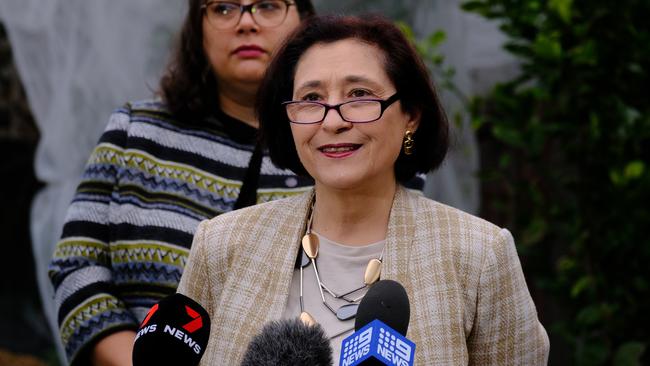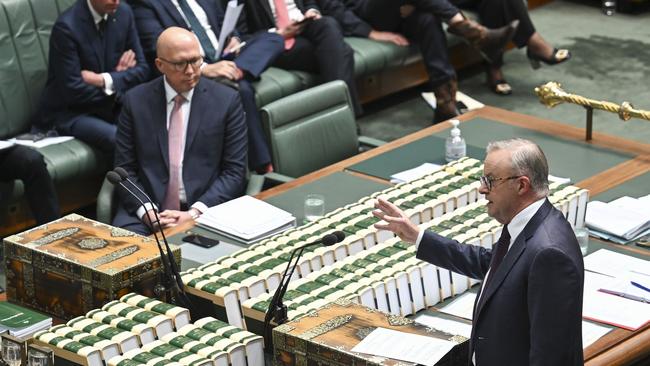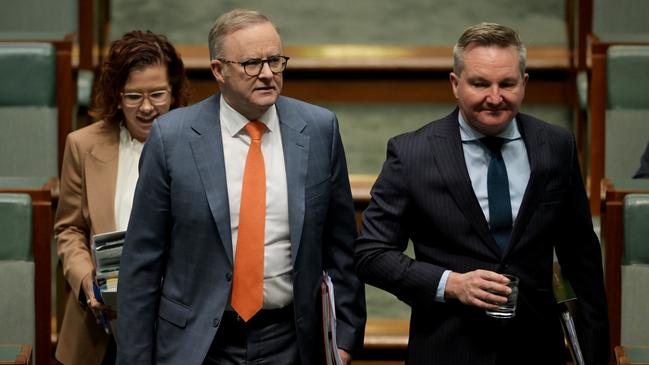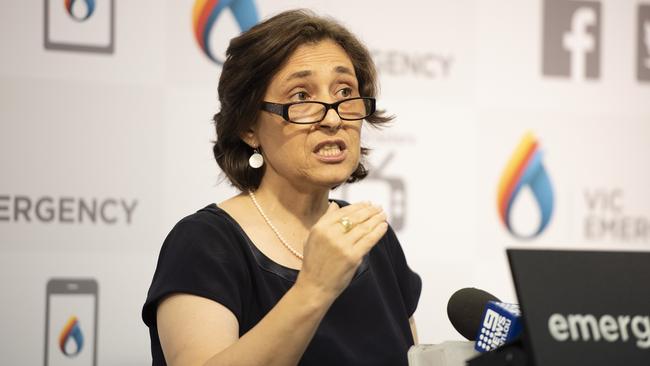
Both the ALP government and the Coalition are setting themselves on a path that, unless modified, could make us a high cost poorer nation unable to afford current social services.
To accuse both major political parties of getting it wrong is obviously a big call for a commentator, but when you’ve been around six decades, you get a sixth sense that tells you when politicians are aiming at elections.

My justification for these statements start with clear facts:
•Both the ALP and the Coalition attempted to reduce emissions with major projects, which have failed. The Coalition’s attempt via Snowy hydro is plagued with exploding costs and delays.
The ALP’s equivalent disaster is massive wind and solar farms in rural areas where the farmers are white-hot with anger, and that anger is multiplied many times when the projects attempt to bring power to market through some of Australia’s best rural and tourist areas with ugly transmission towers. When projects don’t have community support, they normally fail and end in courts to enrich lawyers.
•Given the above big project disasters, the target of reducing emissions by 43 per cent by 2030 is simply not achievable, and politicians who claim it can be done are either lying or ignoring the facts.
•We now have more major project plans where have not learned either from the above two disasters or from the projects that have worked.
One idea is to connect Tasmanian power to the mainland. This was originally a pre-election, a Coalition plan. The costs are becoming monumental and it simply not feasible on present technology.
Victoria is planning an uneconomic Bass Strait wind farm, and NSW has a similar project offshore from the Hunter Region. Victoria is the most advanced, and it is being erected in the middle of a global wind farm boom with costs will saddle the state with uneconomic power for a generation. While there is debate about nuclear costs, there was no proper debate about the enormous cost of uneconomic offshore wind projects. This reflects very poorly on the media and on the opposition.
Subsidies of around $4bn and $5bn a year to generate big profits for the project investors are on the table.

The most promising technology is nuclear, and the world is now spending vast sums to adapt it to current conditions. In the UK, Rolls-Royce has joined nuclear development. We don’t have to commit at this stage, but we can undertake preliminary cost estimates that show that nuclear is far cheaper than offshore wind. But both technologies are likely to improve dramatically in the next two or three years.
It is completely ludicrous to ban any technology, as the ALP has done with nuclear.
While the world has decided that nuclear looks the best option, we don’t have to race in and commit to nuclear at this stage. After two disasters, it’s time to go for cheaper options that will be popular in the community.
•Arguably, Daniel Andrews led one of the nation’s worst state governments since federation. But he won three elections because he was one of the best “one-liners” in the country, and he embarked on an infrastructure program – removing rail level crossings – that worked.
The politicians in both major parties can actually learn from Andrews. Embark on projects that have community support and work. If you don’t do that and saddle the country with uneconomic power generation, the whole process of emissions reductions will be put in jeopardy, which is happening in many parts of the world, including Europe.
Here are some simple ideas that will work and will have popular appeal among Australians.
We have large areas of factory/warehouse roof space in all our capital cities. We should embark on a program of incentives that puts solar panels on every available factory/warehouse roof. They can be linked to the established network which will require alterations that are a lot easier and, cheaper than those destroying our countryside
And the investment can be used to improve the economics of home rooftop generation. It will attract capital investment.
There are areas near transmission lines where wind farms can be erected if the farmers are happy to sell their land or rent the space. There are many such areas around our cities.
One of Australia’s biggest and lowest cost gas deposit sits on the national pipeline but is being blocked by one person – Victorian Energy Minister Lily D’Ambrosio.

The deposit does require six wells to determine permeability, but the deep water in which the gas is dissolved can be used to promote irrigation and carbon reducing plantings to make Victoria’s on shore non fracking gas the lowest net emitting gas in the world.
Gas was always seen as an interim stage and our unique gas cannot only help the nation but gas fired power stations can replace ageing brown coal station with enormous reductions in emissions especially when combined with the use of water for stored carbon plantings.
Naturally, the Palestine/Green movement will oppose it, but I think Australians will understand the benefits. Selected coal eliminating gas power than works well with renewables helps us buy time so that we can actually undertake a major project whether it be nuclear, technology improved offshore wind or other global developments without the sort of disasters that have o far plagued our carbon reduction efforts.






The intense political pressure to win the renewables/climate debate is now creating great danger to Australia’s long term energy costs.